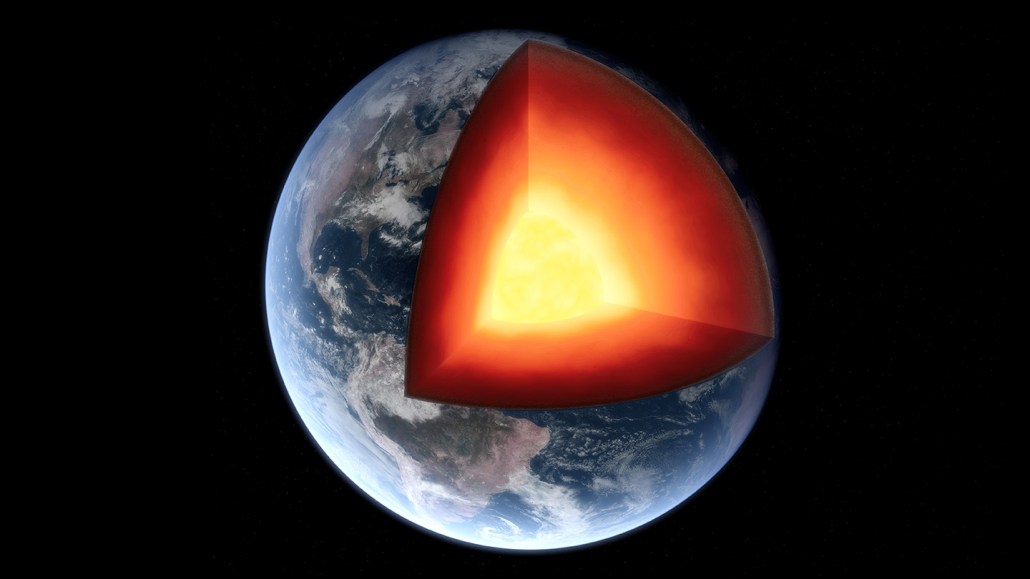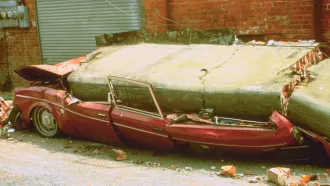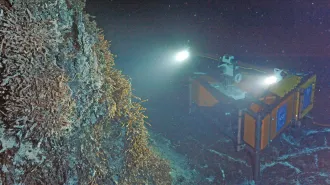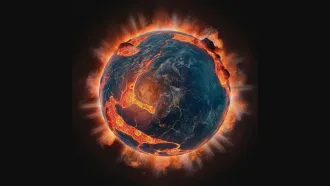
Earth
Earth’s core may hide dozens of oceans of hydrogen
Hydrogen reserves in Earth’s core large enough to supply at least nine oceans may influence processes on the surface today.
By Nikk Ogasa
Every print subscription comes with full digital access

Hydrogen reserves in Earth’s core large enough to supply at least nine oceans may influence processes on the surface today.
We summarize the week's scientific breakthroughs every Thursday.

Seismic tremors reveal a shallow fragment of an ancient tectonic plate beneath Northern California, helping explain damaging earthquakes near the surface.

An analysis of global climate data shows sustained warming even as El Niño faded.

Trees are known for absorbing CO2. But microbes in their bark also absorb other climate-active gases, methane, hydrogen, and carbon monoxide.

Longest lightning, the first AI-generated genomes and biggest black hole smashup were among this year’s top science superlatives.
New footage shows orcas and dolphins coordinating hunts, hinting at interspecies teamwork to track and catch salmon off British Columbia.

Data from Axial, the most-monitored underwater volcano, are helping geophysicists hone eruption predictions. For Axial, 2026 is their next bet.

When the early Earth’s magma ocean crystallized 4.4 billion years ago, the deep mantle trapped an ocean’s worth of water, scientists say.

Stalagmite data suggest Homo floresiensis faced prolonged drought that stressed both them and their prey, contributing to their disappearance.

A volcanic eruption may have triggered a deadly chain of events that brought the Black Plague to Europe in the 14th century.
Subscribers, enter your e-mail address for full access to the Science News archives and digital editions.
Not a subscriber?
Become one now.